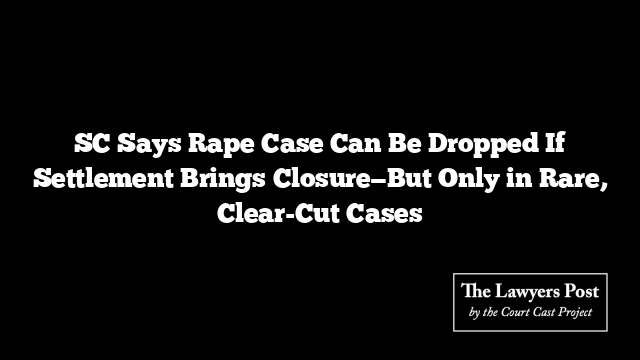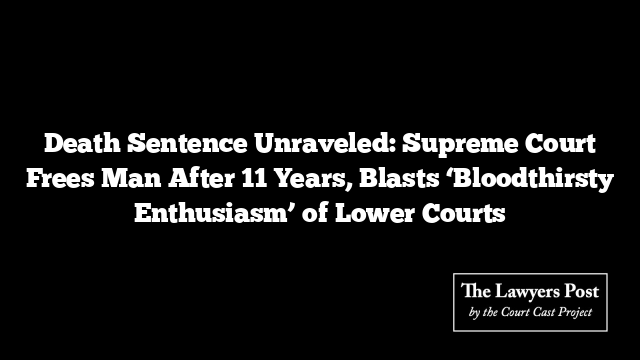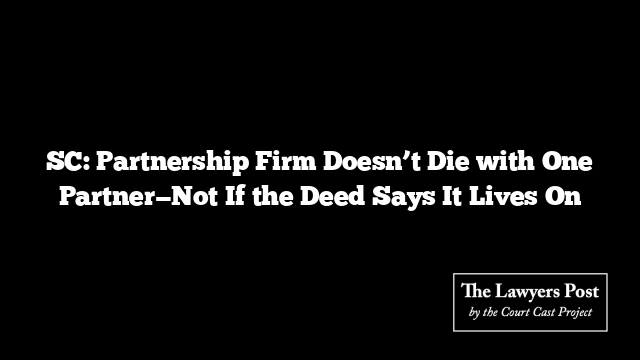In a nuanced decision walking the tightrope between legal gravity and personal agency, the Supreme Court of India has ruled that rape charges may, under exceptional circumstances, be quashed if the complainant and accused reach a meaningful, voluntary settlement.
The ruling came in response to a challenge to a Bombay High Court (Aurangabad Bench) order that refused to quash a rape case, even though the woman at the heart of it had made her peace with the accused and no longer wished to pursue the matter.
A bench of Justices Vikram Nath and Sanjay Kumar acknowledged the deeply serious nature of offences under Section 376 of the Indian Penal Code, noting that ordinarily, courts should not allow rape charges to be dropped based on private settlements. But the judges also made clear that the judiciary is not shackled to rigid formulas when deciding whether justice is better served by ending a trial than by pushing it forward.
Quoting the facts of the case, the bench noted that the second FIR filed by the woman appeared to have been lodged in reaction to an earlier complaint and that, crucially, she had since expressed a clear, consistent, and unambiguous wish to move on. In a sworn affidavit and in court, the woman stated she was now married and wanted to protect her personal peace rather than rehash a painful chapter.
“There is no point in dragging a case where the complainant no longer supports the prosecution,” the court observed, adding that continuing with the proceedings would only cause unnecessary trauma to all parties and strain the judicial system.
The bench emphasized that such relief is not routine—it is rooted in specific facts, a firm and voluntary stand by the complainant, and a demonstrable lack of public interest in pursuing the prosecution further.
In this case, titled Madhukar & Ors. vs. State of Maharashtra & Anr., the top court ruled that continuing with the trial would be “an abuse of process” and formally quashed the proceedings.
The takeaway? While rape is undeniably a grave crime, courts must sometimes ask: If both justice and peace have been privately restored, should the law still insist on pain?





